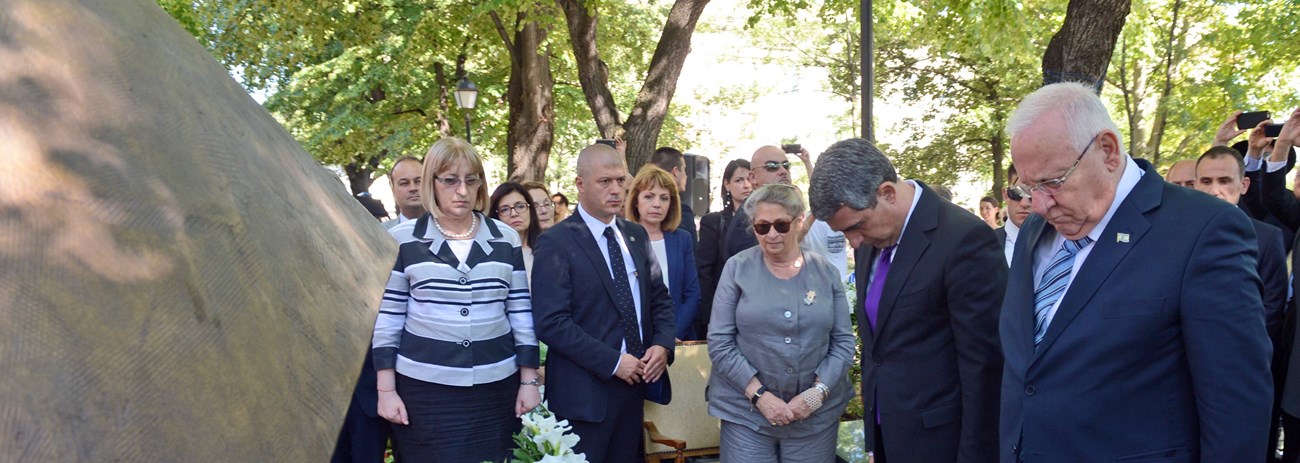You have probably heard of Schindler’s List — Steven Spielberg’s movie, that brought to life the story of a German member and spy of the Nazi party who saved the lives of over 1000 Jews during the Holocaust by employing them in his factories in occupied Poland.
You may have also heard of the heroic rescue of the Danish Jews. With the help of the Danish people and the Danish resistance movement, 7,220 out of the 7,800 Jews escaped the Nazis, finding salvation in Sweden.
What’s lesser known is the story of the fifty thousand Jews saved by Bulgaria. A story no less fascinating or deserving of recognition, yet unknown to many. Michael Bar-Zohar states in his book “Beyond Hitler’s Grasp” that “For years Bulgaria’s Communist regime had tried to suppress the real story about the rescue for a very simple reason. The Bulgarian rescue had been carried out mostly by Communism’s three worst enemies: the Church, the royal court, and the pro-Fascist politicians. The Communist regime couldn’t admit that fact because it contradicted its basic beliefs.” An even more fascinating fact about the rescue is that the fifty thousand Jews were saved while Bulgaria was an actual ally to Hitler.
Bulgaria gained its independence from the Ottoman Empire in 1878. However, the newly independent state did not include all the territories it had desired, leaving ethnic Bulgarians outside of its newly formed borders. Bulgaria’s desire for complete unification was the main reason for joining the Axis. In order to gain its territories back, the country allied with Germany as Hitler promised to help Bulgaria.
That alignment came at a certain price. The rescue of the Bulgarian Jews was paved with a series of dark events. Although a fascinating and heroic story, it carries the scars of the loss of the 11,000 Jews from Thrace and Macedonia who were sent to the Nazis. Despite the fact that those territories were under Bulgarian administration, Germany did not acknowledge the annexation of Thrace and Macedonia to Bulgaria. Therefore, none of the Jews living in those areas received Bulgarian citizenship or nationality, making it impossible for the Bulgarian authority to interfere.
The deportation of the Jews from Thrace and Macedonia alerted Bulgaria to what was about to follow. In March of 1943, trains arrived in Bulgaria to transport all of the Jews straight to a death camp in Treblinka. Arrests began early in the morning as policemen gathered Jews at school yards to await their deportation. However, not a single Jew left the country. The local Metropolitan Kiril, ordinary Bulgarian citizens, and members of parliament mobilized against the deportation and succeeded in preventing it. The head of the Bulgarian Orthodox Church played a major role in the rescue, having arrived on the day of the deportation at the railroads where the trains were supposed to depart.
Bishop Metropolitan Kiril sent a letter to the King of Bulgaria pleading for the Jews to be saved. The church opened its doors and provided shelter for the Bulgarian Jews. Due to the pressure of the public outcry and the persistence of the Bishop, the King canceled the deportation, leaving the trains for Treblinka entirely empty.

However, that did not stop Hitler from continuing to demand the deportation of the Jews. Months later, he tried again, requesting from the King that this time all of Bulgaria’s Jewish population be sent to Poland. In response, King Boris told the German leader that the country needed the Jews for labor, hence he created labor camps where twenty thousand men were sent to work and remained in the country. The King’s skillful and quick response to Hitler’s demand prevented the second deportation of the Bulgarian Jews to the death camps.
The rescue of the Bulgarian Jews remained a long kept-secret until the end of the communist regime in 1989. Fortunately, documents that recorded details of it were only hidden and locked up but not destroyed. For that reason, historians were able to expose to the world the bravery of ordinary citizens and the decisive intervention of the Orthodox Church and the King during the Holocaust.

After the war ended about 96% of the Jewish population in Bulgaria emigrated to Israel. The two countries have shared a special bond ever since. On a recent trip to Israel, former Bulgarian president Rosen Plevneliev said, “As a relatively new country with cutting edge entrepreneurship that also boasts an ancient history, Israel is attractive to Bulgaria, which is one of the older countries in Europe, with a Jewish community whose roots date back more than 1,300 years”.
In February of 2017, President Plevneliev was given the Friends of Zion Award in recognition of the fifty thousand Jews rescued during the Holocaust, acknowledging that Israel will not forget the lives saved by Bulgaria. With all its dark and heroic moments, the story of a country that managed to protect its entire Jewish population while being an ally to Hitler is one that deserves to be recognized and remembered. Israel does it, hopefully the rest of the world will do, too.
Contributed by Katrin Gendov, former Campus Coordinator for the Midwest.
This article has since been republished at The Algemeiner.

